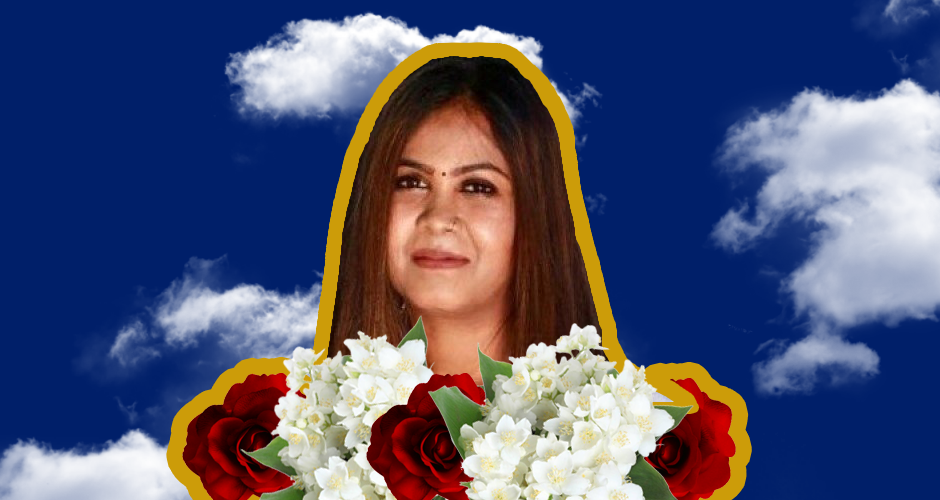
Tharshika Jeganathan was brutally murdered by her husband in Scarborough’s Highland Creek neighbourhood on September 11, 2019. She was just 27-years-old.
There's a Lack of Legal Protection for Gender Based Violence Victims
Tharshika took multiple legal measures in an attempt to guarantee protections from her estranged husband, Sasikaran Thanapalsingham, 38. Eighteen months before her death, she testified that her husband assaulted her. He was acquitted on two charges of assault with the judge citing inconsistencies in Tharshika’s evidence. Wendy Gillis explained “At the time of Jeganathan's death a peace bond was still in effect: Thanapalasingam had agreed not to go within 500 metres of Jeganathan's home, school, workplace or anywhere else she might reasonably be. He'd previously failed to comply with a bail condition related to the assault charges, but was given a conditional discharge with probation.”
She took formal steps to protect herself, and the legal system continuously failed her. The legal system traditionally fails women who are victims of gender-based violence because there tends to be a lack of hard evidence in court, unless there are bruises or physical marks on the victims. Victims of gender-based violence recant their testimonies up to 70% of the time, when they believe the legal system will not protect them and their perpetrator will retaliate. The system does not deter violence against women, it provides a false sense of security and leaves women vulnerable. This is especially true for women who are newcomers or non-status, though it is not exclusive to them. Women who experience gender-based violence are from many different classes, castes, and ethnicities.
Misogyny and Trauma are Causes of Gender-Based Violence in the Tamil Community
Gender-based violence is the result of misogyny and trauma in our community. Misogyny is not exclusive to the Tamil community but pervasive across gender, class, and race. However, there is violent misogyny in the Tamil community that is perpetuated across various mediums—from movies that normalize the act of stalking like Sindhubaadh, the devaluing of women’s work in professional and artistic spaces, the pervasive homophobia and transphobia in the community, and unrelenting alcoholism amongst Tamil men. There is a deep basin of reasons why violent misogyny is entangled in social messaging. Men are taught by the media and people around them that women are intended to be controlled and owned or disposed. They are taught that they are entitled to their partner’s love, time, and body. This control tends to be confused as passion or true love, when in reality, it is manipulative and can easily become violent. Abusive relationships become about a partner exerting control over another. Tharshika was ultimately murdered because she wanted to be free and autonomous— she moved out of Thanapalasingham’s house, was working at the local Dollarama, and creating a life for herself before she was murdered.
Misogyny is deeply rooted in unresolved trauma and the desire to practice control over someone else. This unresolved trauma for Tamil men may be because they were victims of abuse at the hands of relatives, they witnessed the war in Sri Lanka, or they experienced excessive taunting and bullying navigating traditionally racist institutions. If this trauma continues to go unresolved, it will only contribute to a cycle of violence within their families, and their children’s families, and so on. We somewhat mock the drunk fights that happen in the parking lot between Tamil men at seemingly every Tamil event, or make caricatures of alcoholic Tamil uncles, but these experiences are deeply rooted in pain and having difficulty confronting those pains. I feel deep sorrow for our community because of the trauma that we have experienced due to the legacies of colonization, war, emasculation, and violence, but Tamil men have to take responsibility to address the pain caused by these legacies and heal.
During Tharshika’s appearance in court eighteen months ago, Thanapalasingham’s mother and Tharshika’s mother-in-law said that her son had a right to touch Tharshika against her own wishes because of his role as her partner. Violence against women is justified by both men and women in the community and they must both be held culpable for their proliferation of misogyny. Members of the community turn a blind eye when they become aware that a woman is victim to gender-based violence. Men are not the only gender that perpetuate ideas of misogyny, but it is held by people across all race, class, caste, and ethnic lines. People must take it upon themselves to heal and understand where their anger and desire to vilify women comes from.
I have been ruminating about the familiarity of Tharshika’s Jeganathan’s name on TTC rides and while trying to fall asleep. Her name sounds like that of many Tamil women before me who sought to harness safety, kindness, and self-preservation. Tharshika Jeganathan was a woman of multitudes, she was a government worker in Sri Lanka, 27-years-old, had reddish brown hair that straddled the napes of her neck and illuminated the gold hanging from her arms. Tharshika was every Tamil woman and girl I know who caressed their dreams in Scarborough and nurtured them to sleep every night.
I urge you to contribute to this ISEE Initiative that aims to take Tharshika’s body back to Sri Lanka to be with her family.
I also think there’s a need for our people to seek counselling for their pain. Here are some resources to find low-cost therapy in the Toronto area:
There are some Instagram accounts that provide introductions to healing and bringing awareness to our trauma, with the most emphasis on the account deartamilmen, a collective of Tamil men addressing the toxic masculinity, misogyny, homo/trans-phobia and gender-based violence that we have perpetuated within the Tamil community.
Additional accounts include:

























